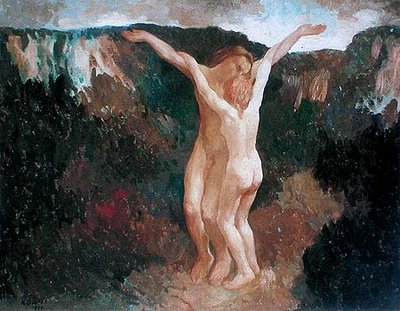
Kahlil Gibran - The Prophet ~ Marriage
This excerpt from the beautiful book, “The Prophet” by Kahlil Gibran, is I think a very accurate and wise observation of marriage. I have become aware since following the Cura Romana protocol that the changes in me are also affecting aspects of my relationship/marriage. It is, to be honest, quite a challenge because the realisation I have of being more ‘in tune’ with myself, is perhaps not very easy to understand for my husband and family.
In some respects, some of what is happening to me could be perceived as selfish? I don’t know … all I know is that I feel that I do have to devote time to myself, having spent years putting everyone else first.
That does require some ‘space’ to breathe, as it were. Don’t know how many of my fellow Cura Romana followers will agree with this? It’ll be interesting to hear your comments.
On Marriage
Kahlil Gibran
You were born together, and together you shall be forevermore.
You shall be together when the white wings of death scatter your days.
Ay, you shall be together even in the silent memory of God.
But let there be spaces in your togetherness,
And let the winds of the heavens dance between you.
Love one another, but make not a bond of love:
Let it rather be a moving sea between the shores of your souls.
Fill each other’s cup but drink not from one cup.
Give one another of your bread but eat not from the same loaf
Sing and dance together and be joyous, but let each one of you be alone,
Even as the strings of a lute are alone though they quiver with the same music.
Give your hearts, but not into each other’s keeping.
For only the hand of Life can contain your hearts.
And stand together yet not too near together:
For the pillars of the temple stand apart,
And the oak tree and the cypress grow not in each other’s shadow.

 Go placidly amid the noise and the haste,
Go placidly amid the noise and the haste,